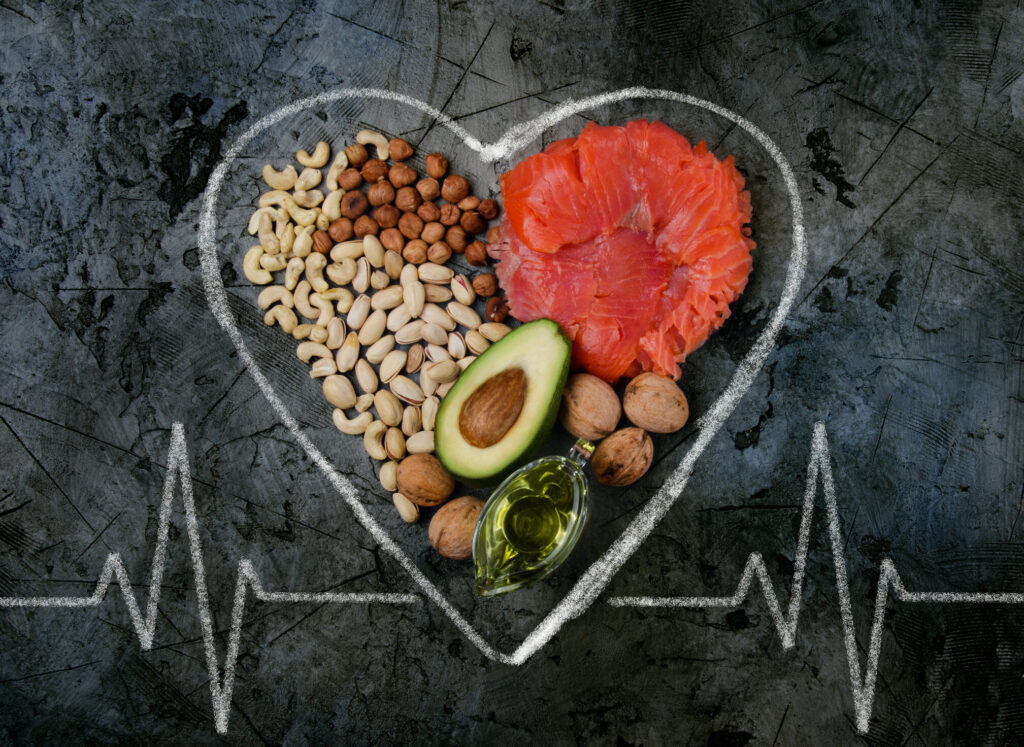

February is American Heart Month, and it’s as good a time as any to focus on cardiovascular health. (Although honestly, healthy habits are a great topic all year round!) The grocery store is one of the best places to find heart-healthy foods that can lower the risk of heart disease and stroke. Whether you’re looking for recipe substitutions or nutritional staples, your neighborhood Food Town has everything you need to help establish good eating habits.
Let’s discuss a few things you should know about how different foods can affect the heart and take a look at how healthy eating can still taste really (really) good.
To start with, one of the biggest threats to heart health is consuming overly processed foods with a high sodium content. Most restaurants use excessive amounts of salt and butter, which can be detrimental to the cardiovascular system. For folks with high cholesterol or blood pressure, it’s safer to cook or prepare food at home where you can monitor high-risk ingredients.
Some of the worst foods for your heart include salt, saturated fats, fried batter, beef, bacon, soft drinks and candy. Limiting your intake or cutting certain foods out of your diet could benefit your heart as well as other systems.
Of course, in addition to the bad foods out there, there are lots that encourage heart health. Read on to learn a few of your top options. And keep in mind that everyone’s body works differently, so it’s important to talk to your physician before making any dietary changes.
Fish with Omega-3 Fatty Acids
Experts say the top two most heart-healthy fish are salmon and tuna. These proteins are low in fat and contain natural oils and nutrients that benefit your circulatory system. In fact, the American Heart Association recommends two servings of omega-3 fish every week.
Wild salmon is rich in omega-3s which can lower blood pressure and reduce the risk of heart rhythm disorders. Salmon can also help lower triglyceride levels and reduce plaque in your arteries. The second-best omega-3 fish is albacore tuna. Fresh tuna is a great substitute for grilled steak, but the canned option is another great heart-healthy choice if it’s packaged in water.
Heart-Healthy and Fibrous Fruits
Fruit can be a great source of fiber and vitamins. Some fruits even contain antioxidants that help prevent cancer, disease and inflammation. Here are a few high points related to some of the more popular fruits you’ll find at your neighborhood grocery.
There are other ways to incorporate fruit into your diet, whether you choose to eat it on the side or as an add-in. For instance, steel-cut oatmeal is believed to stabilize blood sugar levels and reduce bad cholesterol. Low-fat yogurt is another breakfast option that acts as a healthy source of calcium and potassium. Mixing strawberries and blueberries into either breakfast dish is a great way to help your heart and add more flavor.
If you’re looking for other easy ways to get a heart-healthy dose of fruit in the morning, check out our Tampico Tropical Whirl Smoothie and Black and Blueberry Smoothie recipes. Add mangos to savory dishes such as Blackened Shrimp Salad or serve Mango Pico de Gallo on top of a grilled Baja taco for a burst of flavor. These heart-healthy fruits pair well with most salad ingredients — just try this Avocado Tomato Cucumber Salad recipe for a low-carb snack or side!
Keep in mind that fruit contains sugar, and eating too much fruit can be hard on your body. As we mentioned above, it’s best to consult your doctor before changing your dietary habits.

Antioxidant- and Folate-Rich Veggies
It may not sound like it at first, but finding ways to sprinkle more vegetables into your favorite recipes can be fun! More often than not, you won’t notice a dramatic change in flavor. Heart-healthy vegetables might even improve the texture and crunchiness of a dish when prepared properly.
You can add the below vegetables to a stir fry or pasta recipe for heart-healthy benefits, or try these Low-Carb Bell Pepper Tacos for a take on a classic Tex-Mex dish. Not only are they high in vitamins and minerals, but they also help oxygen-rich blood circulate throughout your body.
With today’s rising food costs, it’s more important than ever to find low prices and discounts on groceries. Check out Food Town’s weekly ads and scan the store for Swift Savings yellow coupons during your next visit to get the best deals.
Sterols and Stanols Foods
Products made from real almonds, peanuts, oranges and soybeans are great for your heart because they contain nutrients from sterols and stanols that keep your body from absorbing bad cholesterol. Sterols and stanols are natural compounds that closely mimic the way cholesterol acts in your digestive system.
Sterols and stanols can also be found in vegetables such as broccoli, brussels sprouts, cauliflower and olives. Plenty of foods and by-products contain these compounds, but again — check with your physician before increasing your intake.
Heart-Healthy Substitutions and Add-ins
Not sure where to start when it comes to updating your recipes to be a bit healthier? Your Food Town has you covered! Here are some easy swaps.
Working heart-healthy foods into your diet may seem challenging and expensive, but fear not — your friendly neighborhood grocery store is here to help! Food Town offers so many ways to save on groceries and fresh produce that promotes cardiovascular health. Remember to check out our weekly ad and digital coupons to save big on your next visit!
If you can't find an item you're searching for, let us know! We're always looking for ways to improve your Food Town experience, and we'll do our best to make that product available. Make a suggestion
29 Houston-Area Locations